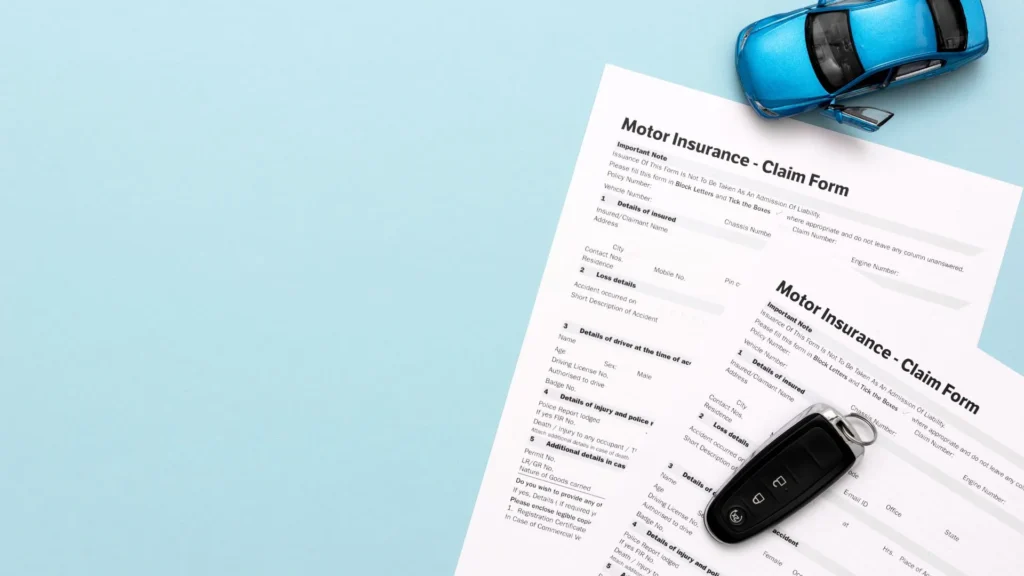Car insurance cost is almost as unique as your fingerprint. Although your circumstances may seem similar, several personalized rating factors differentiate your premium rates from your friends, neighbors, family members, and the national average.
Car insurance in the U.S. can cost an average of $2,014 per year, with minimum coverage costing $622. This rate includes liability, comprehensive, collision, and additional coverage that drivers must carry in their state. It is essential to know the average cost of car insurance to make an informed decision on your personalized insurance policy. It allows you to pay a competitive rate for your car insurance.
However, your car insurance cost will vary depending on several factors. Let’s break down some of the factors and how they affect your rates in this blog.
How Your State Impacts Car Insurance Rates?
The state where you live, its accident and claim reporting frequency, and the cost of labor and parts can be more expensive than others. For instance, Vermont, Idaho, New Hampshire, Maine, and Massachusetts have the cheapest auto insurance rates. These states have a comparatively lower cost of living, lesser likelihood of accidents and claims, and less traffic congestion in these regions.
On the other hand, drivers in New York, Florida, Kentucky, Louisiana, Michigan, Rhode Island, and Nevada can expect a higher average cost of car insurance. It could be due to frequent claims, making drivers riskier to insure overall.
Car Insurance Costs by Driving History
Getting caught drinking and driving will increase your car insurance cost significantly. On average, the rates can go up by about 83% for a driver with a recent DUI. The average increase in Connecticut, Michigan, and North Carolina is more than $4,000 annually. Also, car insurance rates get about 50% higher for drivers after an at-fault accident. In that case, it is better to shop for car insurance quotes after three to five years of the accident to find a better deal.
Average car insurance costs based on driving history:
| Type of policy | Clean record | Recent DUI | After one at-fault accident |
| Full coverage | $2,148 | $3,933 | $3,164 |
| Minimum coverage | $685 | $1,403 | $1,044 |
Switching to the minimum required insurance coverage in your state can lessen the blow of a high premium, though better choices exist. You can lower costs if you shop for the cheapest auto insurance after a DUI. Each insurance company has different considerations when setting prices in case of a crash.
You will want collision insurance if you seek coverage after an at-fault accident. Moreover, you may be required to maintain collision and comprehensive insurance coverages in case you took a loan on your car.

How Credit Score Affects Car Insurance Rates?
Poor credit has a significant impact on car insurance rates in most states. Short credit history can damage your credit-based insurance score, raising your vehicle insurance prices. For drivers with bad credit, the average increase in vehicle insurance costs is more than 61%. However, credit scores are not allowed to be used by insurers in California, Hawaii, Massachusetts, or Michigan to calculate auto insurance prices.
Average car insurance prices for people with bad credit:
| Type of policy | Good credit | Poor credit |
| Full coverage | $2,148 | $3,455 |
| Minimum coverage | $685 | $1,118 |
Does Age Impact Car Insurance Rates?
Insurers see less experienced drivers as a more considerable risk, typically charging them heftier premiums. Insurers categorize anyone between 16 and 25 or 30 as a young driver. As you age past your 30s, rates tend to go down. It gets higher again after 70 due to age-related health conditions that may impact the driving behavior of those above 70.
The average car insurance cost is $4,372 for full coverage ($1,491 for minimum necessary coverage) for a 20-year-old driver with a good credit score and a clean driving record. Those with bad credit or poor driving records might have to pay more.
Car Insurance Cost by Vehicle Type
Your car insurance rates are affected by the make and model of your vehicle. Insurers tend to charge higher prices to cover certain cars, including sports models, which generally have higher top speeds and an increased likelihood of a crash or traffic violation. Luxury cars and electric vehicles are costlier in terms of insurance as they have expensive parts and details that are difficult to replace. Popular car models more likely to be stolen also attract higher rates for comprehensive insurance.

Car Insurance Prices by Gender
Gender is a major contributing factor for premiums in a majority of states. Men typically cost more to insure compared to women as they are considered risky drivers. However, some states, including California, Hawaii, Massachusetts, Michigan, North Carolina, and Pennsylvania, prohibit this rating factor.
What else affects the price of car insurance? Some additional factors considered for quoting insurance rates are occupation, marital status, level of education, previous insurance company, continuity in insurance coverage, annual mileage driven per car, home ownership, and additional coverages.
How To Lower the Cost of Car Insurance?
Here are some effective strategies to help you lower the price of your car insurance and save some money in the long run.
- Shop around: It is essential to compare rates from several insurers, especially when changes impact your rates.
- Bundle Plans: Experts advise bundling your insurance plans, such as home or medical insurance policies, to get the best premium discounts.
- Pay upfront: Several insurance companies offer a discount if you pay the entire premium, making it a cost-effective option.
- Take a driving safety class: Every state offers driver safety programs approved by the authorities. If you take these classes, typically 6-8 hours long, insurers offer discounts after completing the programs.
- Use a monitoring app: Insurance providers often provide usage-based discounts when you let them monitor your driving habits. Use tracking apps to check aspects like braking distance, average speed, and driving times.
- Reduce coverage: With your vehicle aging, you may not need comprehensive and collision insurance coverages. You can drop certain coverages from your policy to reduce your overall cost.
How much is car insurance by company?
| Insurance Company | Annual Full Coverage Premium | Monthly Full Coverage Premium |
|---|---|---|
| Allstate | $2,971 | $248 |
| American Family | $1,839 | $153 |
| Amica | $2,664 | $222 |
| Auto-Owners | $1,639 | $137 |
| Erie | $1,694 | $141 |
| Farmers | $2,838 | $237 |
| Geico | $1,741 | $145 |
| Mercury | $1,894 | $158 |
| Nationwide | $1,853 | $154 |
| Progressive | $1,988 | $166 |
| State Farm | $2,364 | $197 |
| The Hartford | $2,645 | $220 |
| Travelers | $1,806 | $150 |
| USAA | $1,695 | $141 |
Conclusion
You may have concluded that the average car insurance cost depends on many factors, and no matter how many averages you look at, your rates will likely be different. Indeed, the average cost of car insurance is rising thanks to record inflation, unprecedented supply chain issues, and increased post-pandemic claims.
Did your rates go up, too? There’s no assurance that your insurance rate go up (or down) in 2023 due to the highly personalized nature of car insurance prices. You should prepare for your car insurance rate and shop around for your preferred quotes to get a lower premium.





























